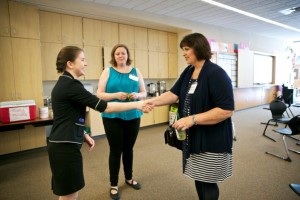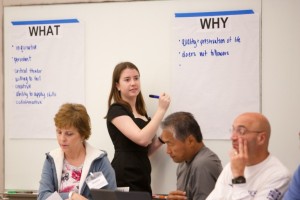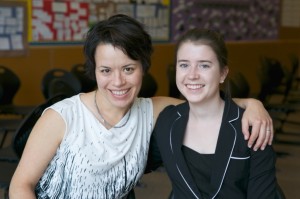I found my summer internship using Google Maps. That may be a slight oversimplification, but Google Maps is where it started. Friends of mine had gotten summer internships at Amazon, the retail giant, in Seattle, and while I could place Seattle on a map of the United States, I knew very little about the layout of the city itself. A few clicks later, and I was hovering over the Amazon campus in South Lake Union, one of Seattle’s many neighborhoods. Zoomed in enough, I could see labels of other major attractions nearby, and one caught my eye: Institute for Systems Biology.
Backing up a bit, this was the winter of my sophomore year. I had just declared a biophysics major and would be heading to Wellington, New Zealand for a semester abroad from the end of February to the beginning of July. While this timeline meant that I had a nice, long winter break, it also meant that I would have a much shorter summer – 8 weeks. This limited time frame eliminated many of the traditional summer options for science students, especially the traditional 8 to 10 week research positions.
The little label on Google maps led me to a colorful website defining systems biology, explaining what the Institute researches, and introducing the principal scientists. There was a tab labelled “Education and Outreach,” which is where I found the Logan Center for Education, formerly the Center for Inquiry Science. The center works with K-12 educators and scientists to improve the quality of science education in Washington schools. Education had always been important to me and where I ultimately saw my career going.
I carefully constructed my email to Dr. Dana Riley Black, the head of the Logan Center. The gist of the email was, “I think what you do is amazing. Can I be your intern?” After what felt like forever but was not very long at all, I got a polite response directing me to the Institute’s undergraduate internship program, doing research with scientists in the labs. Oops. I tried again, clarifying that I specifically wanted to work with her team in the Logan Center and explaining my limited schedule. We went back and forth a few more times, and I learned that in order to make this happen, I would need to secure my own funding for the summer.
Thankfully, I live close enough to Scripps that I was able to walk in to Career Planning & Resources and explain my situation to the student at the front desk. The good news was that Scripps offered internship grants for exactly this purpose. The not as good news was that applications were due later that day. I was thrilled. Not only did Scripps offer the resources to make this opportunity possible, but I had found out about it in the nick of time. I spent the entire day in the CP&R Library and the Motley, writing up a résumé, asking a plethora of questions, and filling out the application. I finished just in time.
As you can probably guess, I received the internship grant, was utterly thrilled, and secured a six-week internship at the Institute for Systems Biology’s Logan Center for Education.
Washington State and others, including California, have adopted the Next Generation Science Standards (NGSS), a series of K-12 science education standards developed from education research, with collaboration between scientists and educators, and with a feedback and revision process. I worked to develop ways to understand the new engineering standards and to find connections between the new standards and the old.
ISB and the Logan Center specifically have a very healthy work environment, which strongly encourages collaboration, respect, and flexibility. Throughout the process, I worked closely with my supervisor who shared her thought process with me and made critical and constructive suggestions in a respectful manner. I met women who were thriving in science fields, and I felt that I spent my summer doing meaningful work. I would like to thank Dr. Dana Riley Black for facilitating my internship and serving as a supportive mentor.
I encourage everyone to keep your eyes open and find your own opportunities – even if they are on Google Maps.


